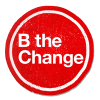Think Progress.org
By Stephen Lacey on Jun 3, 2011
UpStart[uhp-stahrt] n. 1. A company or organization with innovative approaches to energy use, carbon pollution, resource consumption, and/or social equity, 2. A company or organization overcoming market barriers to build the new clean energy economy.
While playing an important role, governments & non-profits cannot build a “clean economy” on their own; rather, the private sector must lead the way. And thanks to a growing number of forward-thinking companies, the clean economy is already in the works. In this series, Lisbeth Kaufman of the Center for American Progress highlights “UpStarts” – companies that are shaking up the market, breaking down barriers & helping change the economy.
B Lab is creating a new type of company, the B Corporation, which modifies governance so that managers respond to long-term interests of investors, stakeholders & the environment, rather than just focusing on short-term profits.
In a Harvard Business School case study on B Lab, co-founder Coen Gilbert explained B Lab’s goals & approach to overcoming market barriers for social entrepreneurs:
There are tons of individual companies that have managed to effectively balance social & business impact. Still, we need to institutionalize the values, standards & accountability that allow companies to do that. We need systems in place. We need to change the rules of the game instead of continuing to clean up the mess.
We want to look at the root causes. The root causes are not evil people, but rather poor system design. Right now the system is designed to maximize short-term stock value; it does that well, but at the cost of everything else. The question is: How do we have a system that facilitates long term value for the good of society?
The Problem: Undefined status & standards for for-profit social entrepreneurs
Over the past decade the social entrepreneurship sector has grown to include an estimated 40 million people employed worldwide, all working to address the most pressing environmental, economic & social challenges of the day. Despite the rising numbers of social entrepreneurs, for-profit businesses in the sector face a number of daunting challenges.
These barriers include:
Legal Status: Current corporate law makes it difficult for companies to prioritize social & environmental impact, requiring companies to maximize shareholder financial return above all else. Until the advent of B-Corporations, there was no legal status for companies that seek to produce social & environmental benefits in addition to profits.
Standards & Transparency: Most corporations have a stated corporate social responsibility (CSR) mission, but without economy-wide standards it’s hard for consumers to tell which companies have real impactful social policies & which simply have impactful marketing campaigns.
Incentives: While the government grants non-profit organizations tax exempt status & allows non-profits to accept tax-deductable contributions, there are no such incentives for for-profit socially beneficial organizations.
The Solution: The B Corporation
Legal Status: B Lab is changing the rules of the game by changing the very structure & legal status of the corporation. Officers & directors of B Corporations have legal permission & protection to consider the interest of all stakeholders, in corporate decision-making: employees, consumers, the community, the environment, not just shareholders. The B Corporation is essentially a new corporate form, a for-profit hybrid of the standard corporation & the socially oriented non-profit. Four states have passed B Corp laws, while six more states consider B Corp legislation.
Standards & Transparency: B Lab has designed a B Impact Rating System (BIRS) to measure a company’s social & environmental performance, setting economy wide standards that apply for all sectors & business sizes. To qualify as B Corporation, a company must complete the B Impact Assessment & receive a composite score of at least 80 out of 200 points. BIRS is updated every 2 years to remain relevant & accurate & version 3.0 is now up for review. The rating system uses a cold hard numerical score to cut through “green washing” & CSR marketing.
Incentives: B Lab is actively building incentives to encourage businesses to join the B Corporation community & to reward the organizations that are already making positive impact. With a network of more than 60 service partners, B Corps get discounts on various business services amounting to more than $750,000 in savings, including Salesforce.com, NetSuite software, Inspire Commerce credit card processing, along with increased advertising & marketing benefits. Likewise, the B Corp community includes a growing network of more than 25 investors interested in supporting B Corps. To ensure the best & the brightest work for B Corporations, the Yale School of Management forgives student loans for graduates who work at a B Corporation within ten years of graduation.
So far there are 419 B Corporations of various sizes across 54 industries, with a total of $1.94 billion in revenues. The community includes large well known brands like Method, 7th Generation & Good Capital as well as numerous smaller startups.
The conventional corporation has little incentive to address the most pressing issues the world faces. B Lab, a prime example of an UpStart, serves as a cutting-edge way to allow entrepreneurs to solve important climate, energy & social problems — while making a profit.

